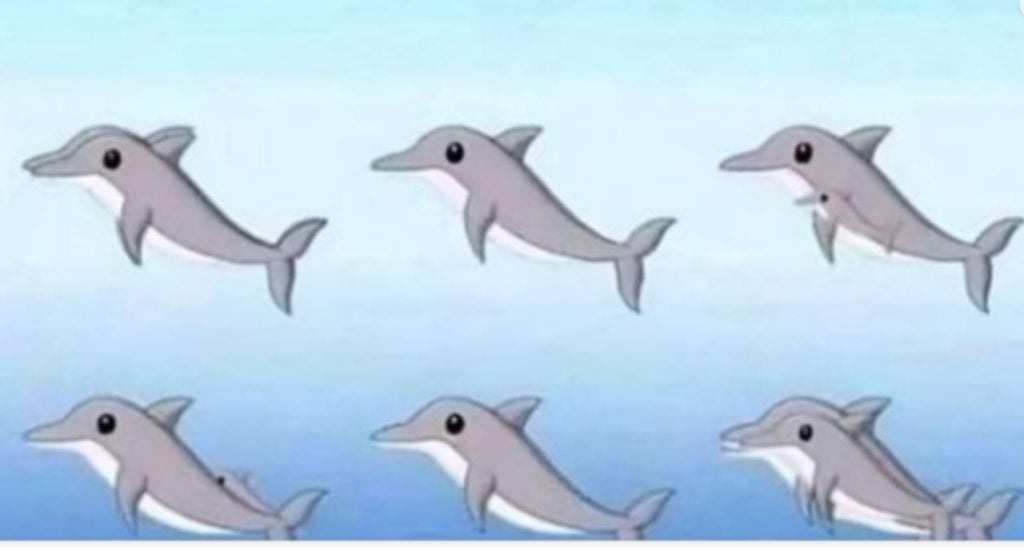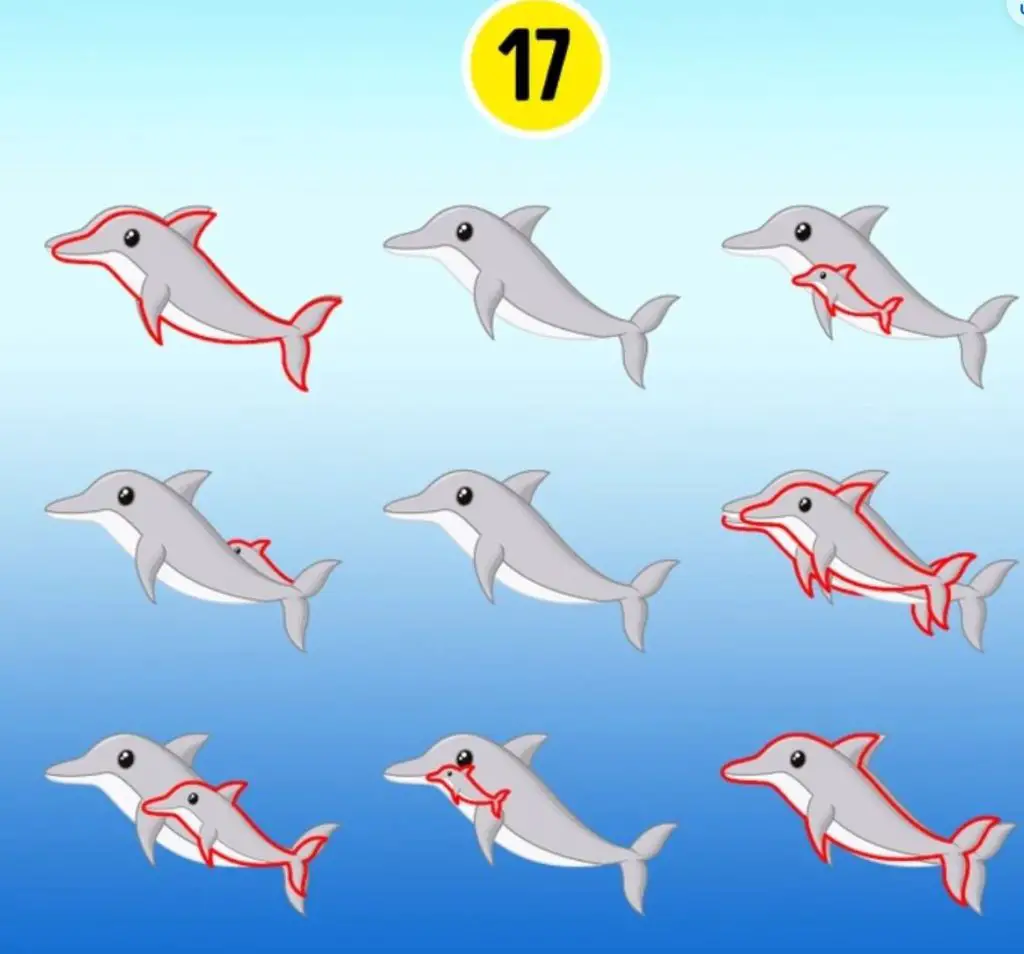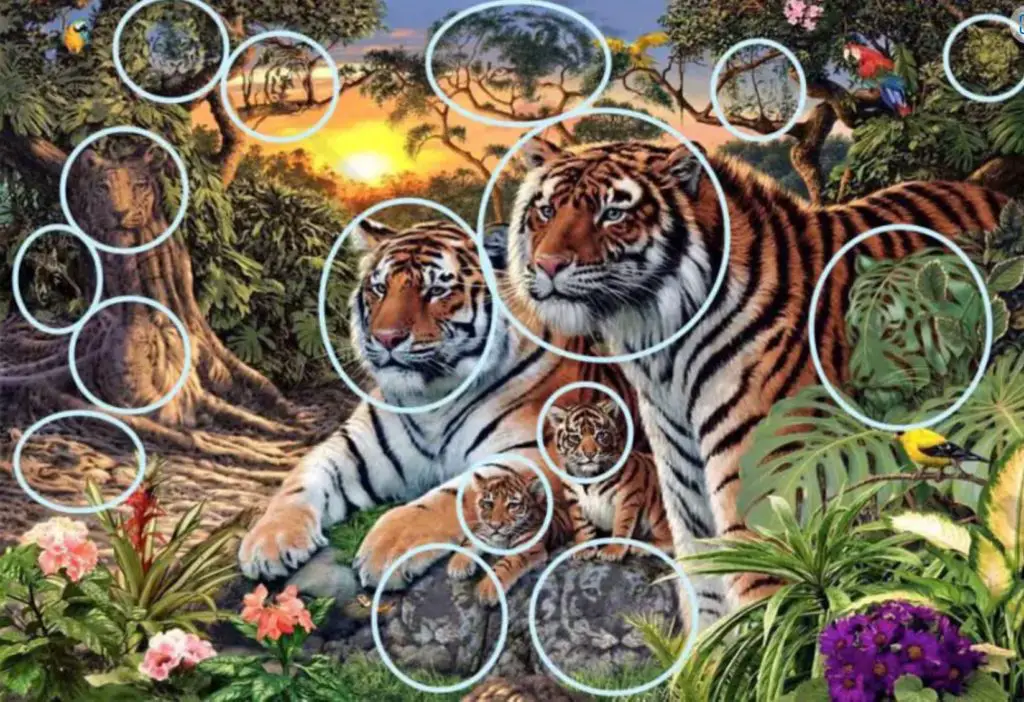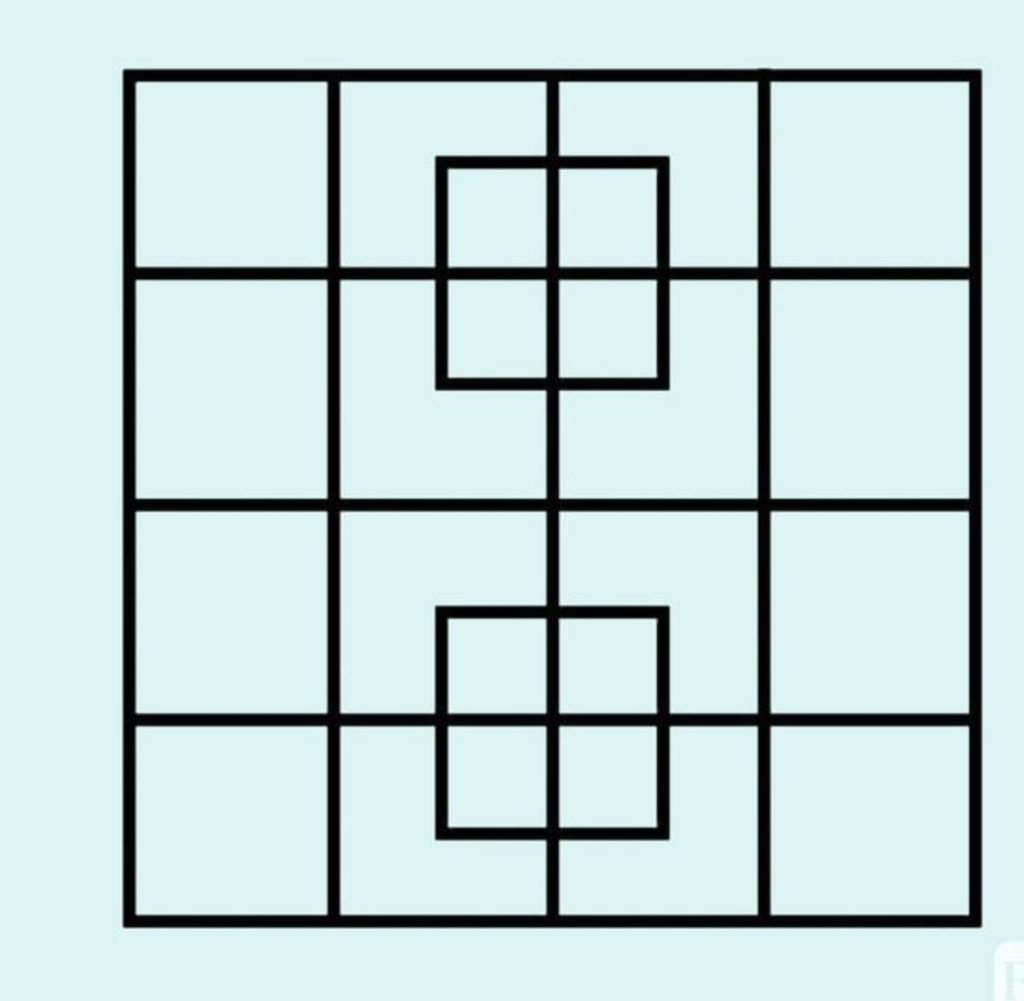Optical illusions and brain teasers are a fun way to trick yourself or others and keep your mind sharp. Most people look at an image that makes them do a double take—finding it necessary to take a second look at what they might’ve seen. This brain teaser features adorable dolphins that are sure to perplex the mind.

How many dolphins are in the picture? Surprisingly, there are 17 dolphins. Some are hidden, in plain sight, while others are hidden more inconspicuously. Some are camouflaged within each other. The first row has 5 dolphins. The second row has 6, as does the third row.

At first glance, there are only a few dolphins. However, after a few seconds, the eyes and brain start registering more little dolphins until, eventually, 17 become apparent. However, it’s interesting to note that it’s actually incredibly common for people to have missed a number of dolphins at first glance. Even if you missed that one, there are others you can try.
Try Another Teaser
This one, for example, is a beautiful image that, at first glance, only has a few tigers.

There are actually 16 tigers altogether.

Perhaps you missed some tigers. Try again with squares!

If you guessed 40, you’re correct! Interestingly, this brain teaser was shared on WhatsApp, the app known for connecting people internationally also offers a few other perks. One is the variety of brain teasers and puzzles that are available for users to try or challenge each other.
How Optical Illusions Operate
Most people feel knocked down a few pegs when encountering a brain teaser or optical illusion, for good reason too. It turns out that not only do these puzzles help us keep our minds sharp and healthy. Consequently, they’re designed to play tricks on us, making our brains work harder to make sense of the image. “When you look at something, what you’re really seeing is the light that bounced off of it and entered your eye, which converts the light into electrical impulses that your brain can turn into an image you can use.” According to Inside Science.
“The process that takes about a tenth of a second, but your eyes receive a constant stream of light, an incredible amount of information, so it’s really difficult for your brain to try to focus on everything at once. It would be like trying to take a sip of water from a firehose. So, your brain takes shortcuts, simplifying what you see to help you concentrate on what’s important. Optical illusions fool our brains by taking advantage of these kinds of shortcuts.”
Similar but Different
Although optical illusions and brain teasers are designed to help work or trick the mind, they’re not exactly the same thing. A few key differences set them apart. For example, optical illusions are generally graphic puzzles that hide something in the image—causing the participant to slow down and focus on all the small details—however, a brain teaser forces you to use logic and reasoning to solve the puzzle.

